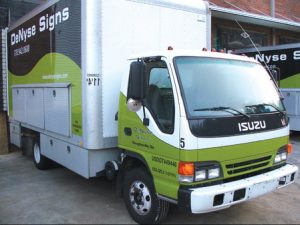When most people consider branding, such iconic household names such as Coca-Cola®, McDonald’s® or Microsoft® come to mind. Through a matrix of effective marketing, attractive promotions, consistent product and, where applicable, service quality, these top-end, Fortune 500 behemoths have built brand recognition discernable even to young schoolchildren.
An insightful scene in Morgan Spurlock’s documentary, Super Size Me, attests to this – flash-card quizzes given to several first-graders revealed more of them were familiar with Ronald McDonald and other characters that peddle fast food than George W. Bush or Jesus Christ.
That said, many small businessmen unfortunately view the concepts of “brand equity” and “marketing campaign” as unapproachable as Mt. Everest. However, building a signshop’s brand recognition doesn’t require hiring a public-relations firm or establishing a ponderous, direct-mail campaign.
Whether a shop owner prefers to get involved in local chambers of commerce, offer free or at-cost product to a charitable organization or function, output periodic mailers or simply “shine up the shingle” with distinctive, on-premise signage, a signshop has many opportunities to distinguish itself. Owners of shops of various sizes offer suggestions that could help you land new customers – and keep old ones.
DeNyse Signs
Advertisement
Situated on the rapidly developing west side of Metro Atlanta, DeNyse Signs (Douglasville, GA) happily serves one of the fastest-growing U.S. areas as well as the larger Southeastern region. Founders Allen and Jennifer DeNyse began sandblasting signs in their basement on weekends to supplement his income as a tractor-trailer mechanic. Eventually, the entrepreneurial nature of running a signshop prevailed, and Allen became self-employed fulltime.
Today, he oversees a shop that employs approximately 100 workers, and a sprawling, 103,000-sq.-ft shop that’s supplemented by satellite offices in Charlotte and Orlando. Rather then entrusting the shop’s fiscal well-being to mass-market advertising, he serves his clientele face-to-face.
“In this business, I think it’s essential to meet your clients at their place of business to develop a strong sense of their needs,” DeNyse said. “We employ 16 outside sales reps, and they understand our goal of seeking the type of growing, dynamic companies with whom we want to do business.”
To create a positive first impression with visitors, he observes the old Southern saying, “Cleanliness is next to godliness.” He employs five, full-time facility staff who devote their energies to keeping the shop nearly immaculate – and DeNyse instills the same pride of place in his employees.
To complement DeNyse’s tidiness, the company also invested considerable time into updating the company’s on-premise signage. The company fabricated its own, 30-in.-tall, building-mounted channel letters, and complemented its monument sign with an enhanced landscaping budget. To improve clients’ accessibility, DeNyse creates a secured link on his website that shows real-time fabrication and status updates on specific projects.
The shop’s trucks also make a signature bright green for the company’s logo that’s somewhere between lime and teal, DeNyse’s staff decorated the shop’s 10 trucks with this shocking shade in its custom paint booths.
Advertisement
“I estimate 80% of the shop trucks I see are decorated with a basic, factory color,” he said. “I think that’s a wasted opportunity. For the first week, new employees are kind of hesitant to get in our trucks because they’re an unusual color. Then, they love them. We get frequent calls about our unique trucks. And, we carry this color through in our shop, down to the break room and the nameplates on our staff’s cubicles.”
Douglas County, which DeNyse calls home, is the 11th-fastest growing U.S. county – other metro-Atlanta counties, such as Cobb to the north and Gwinnett to the east, also rank or have recently ranked in the Top 10. The company develops ample goodwill in the community by making in-kind contributions and donations. DeNyse cites aiding children’s charities as an important company endeavor – donating signage to ShareHouse, a shelter for abused children, is a typical example of such commitments.
The company’s efforts to enhance name recognition don’t eclipse the top calling card of a successful signshop – the work.
“The most important message you can convey to your customer is the value of the intellectual property, which is the top asset of any visual-arts company,” DeNyse said. “Any good shop can fabricate and execute a sign package, but it’s the time you invest in development relationships and helping clients find a solution that I think separates the top shops from the rest.”
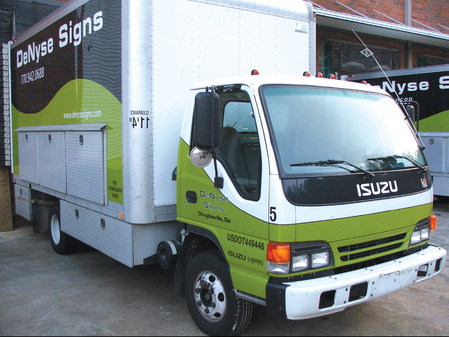

 Tip Sheet7 days ago
Tip Sheet7 days ago
 Ask Signs of the Times2 days ago
Ask Signs of the Times2 days ago
 Real Deal1 week ago
Real Deal1 week ago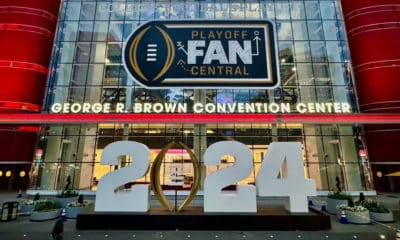
 Benchmarks4 days ago
Benchmarks4 days ago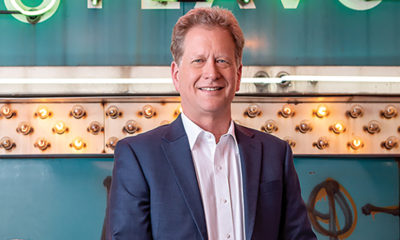
 Editor's Note2 weeks ago
Editor's Note2 weeks ago
 Women in Signs1 week ago
Women in Signs1 week ago
 Photo Gallery6 days ago
Photo Gallery6 days ago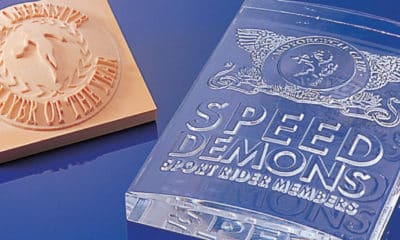
 Product Buying + Technology2 weeks ago
Product Buying + Technology2 weeks ago
